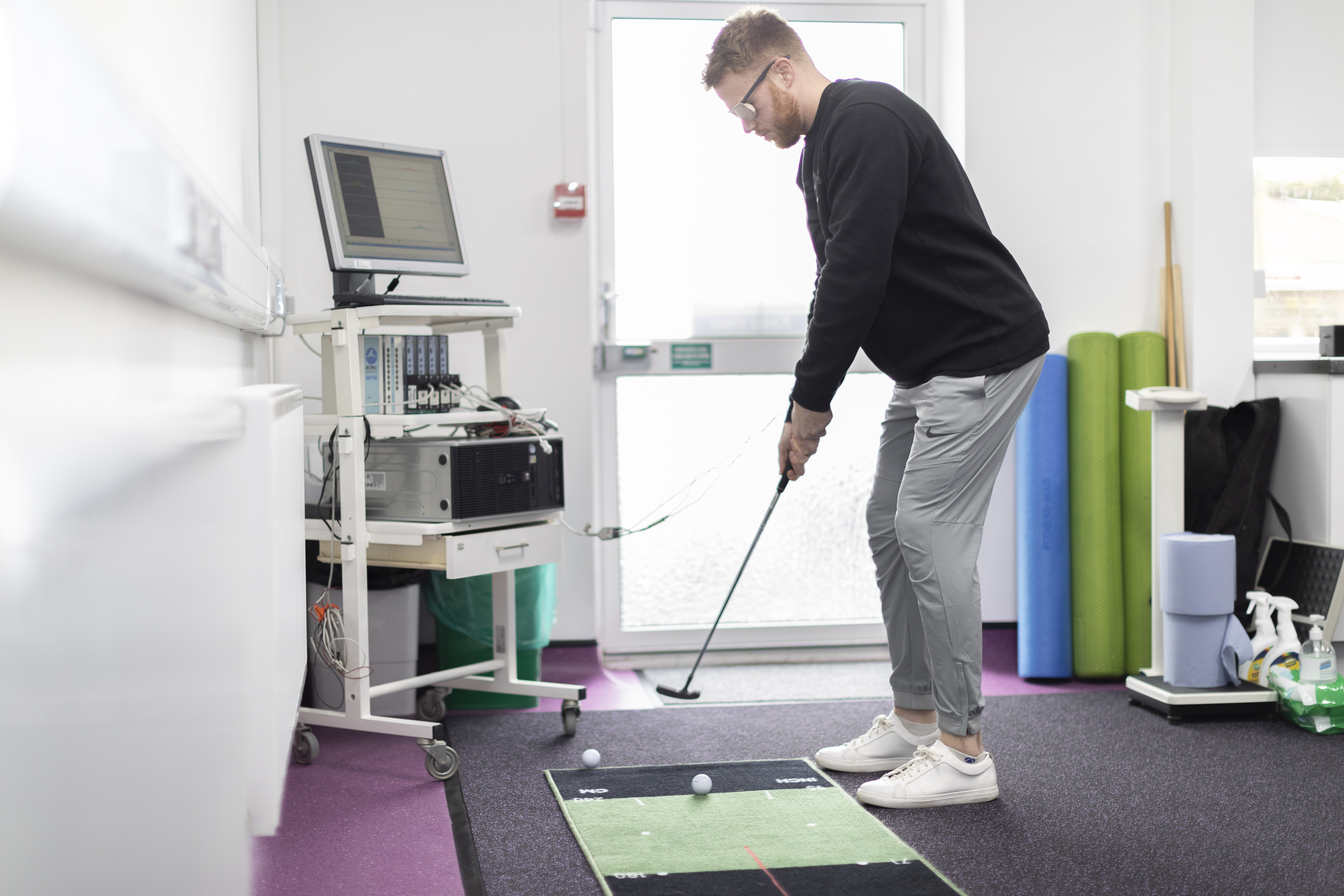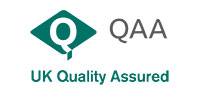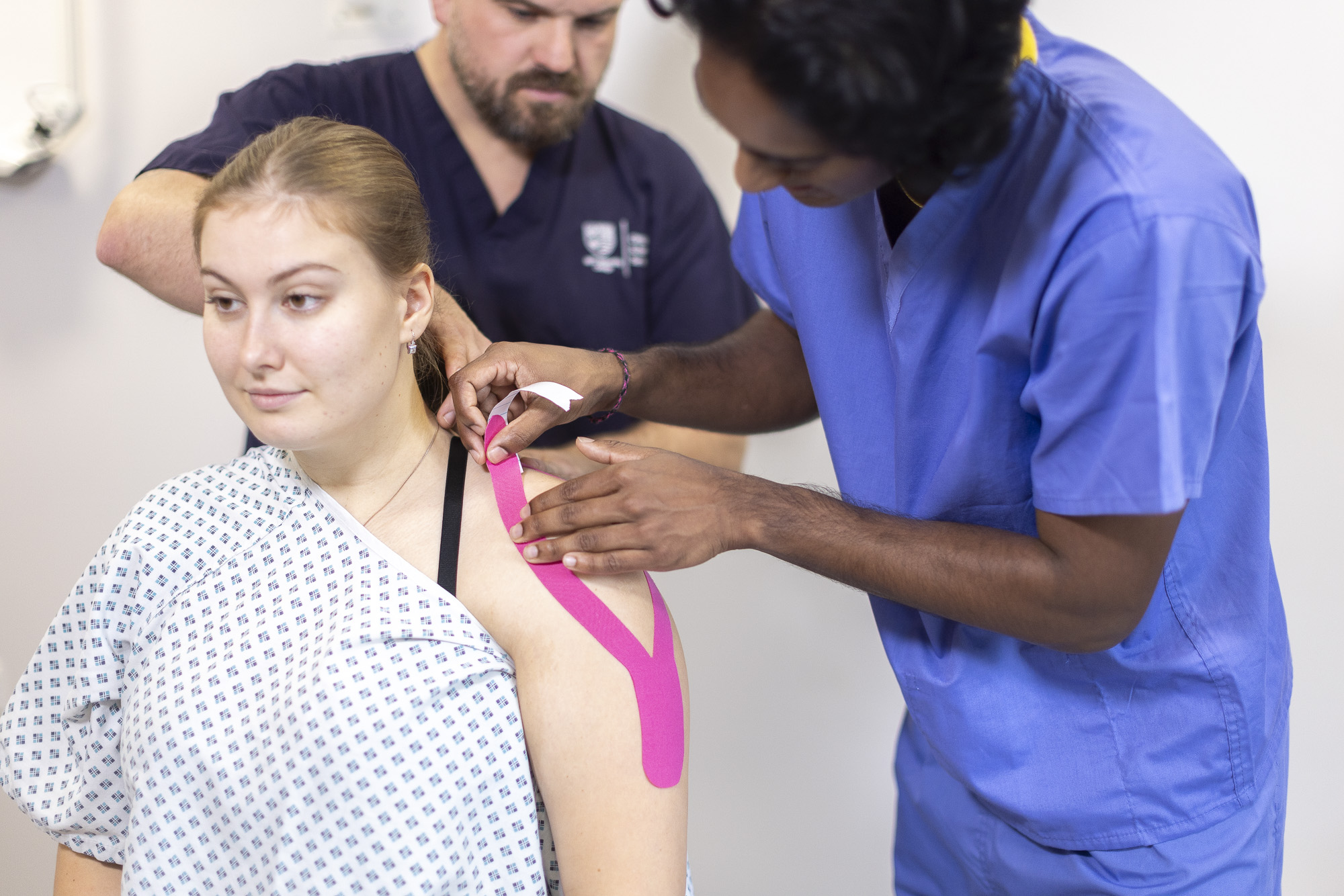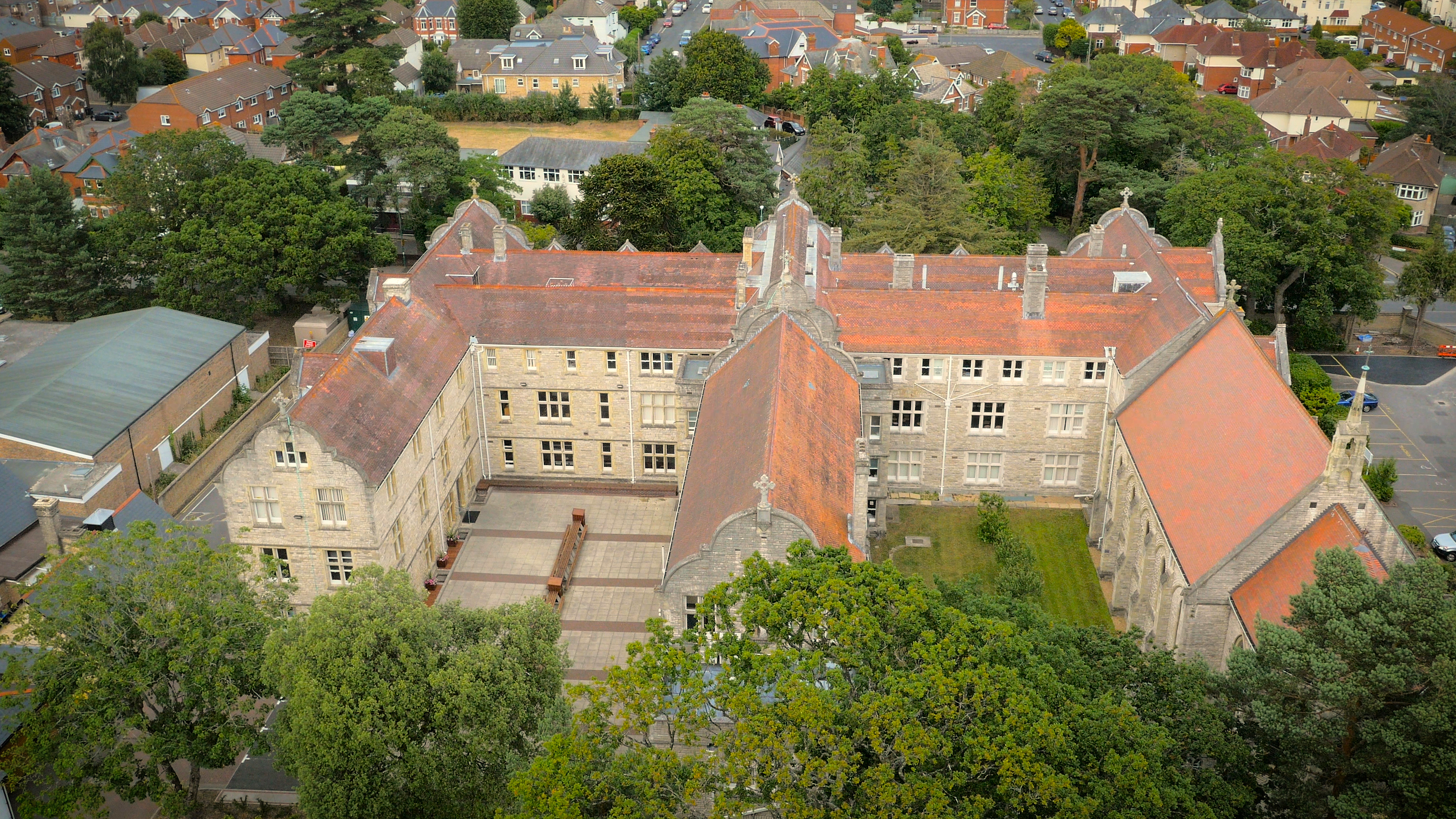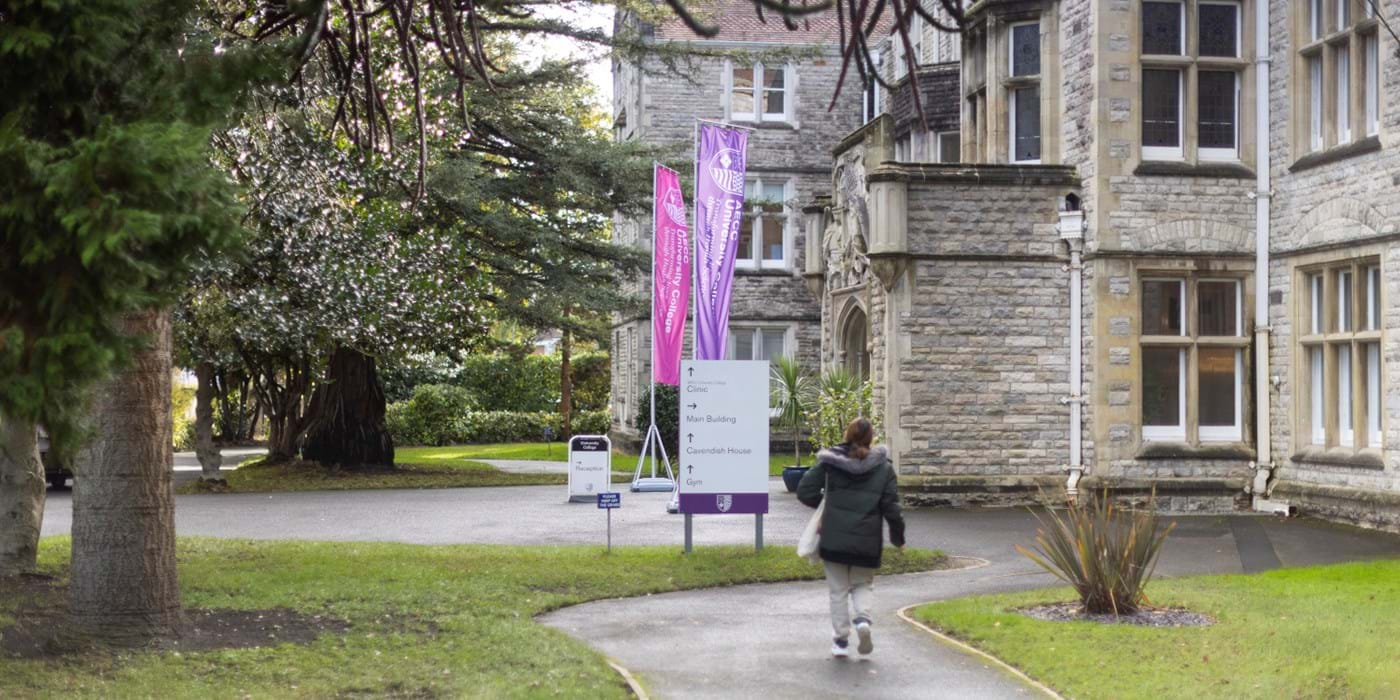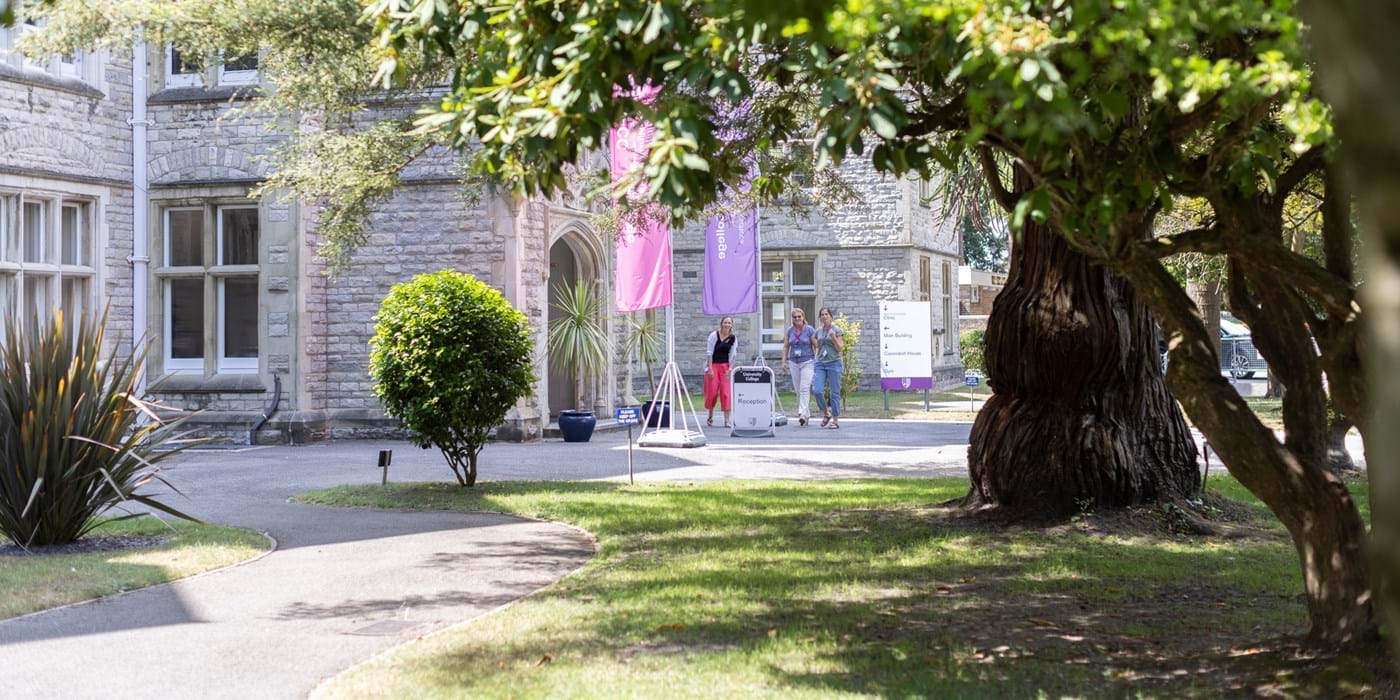Overview
Become a competent, evidence-based practitioner, capable of providing 21st century psychological solutions to the challenges experienced in today’s sport, exercise and performance. This course combines cutting-edge education and hands-on training in a dynamic and supportive environment. You’ll follow a contemporary curriculum that features unique units in mental health, applied practise experience, sports vision and more, with option choices that offer you the chance to forge a specialised pathway.
By choosing to study with us, you’ll benefit from our small class sizes, providing more individual specialist support from staff who are active researchers and leaders in their field. You’ll also be encouraged to collaborate with staff in contemporary research with international teams and individual athletes.
Our outstanding on-site facilities include our sports and performance laboratory, where you’ll have the opportunity to observe patients with a variety of health and performance needs. With on-campus learning scheduled for one day a week, our flexible structure allows you to fit the course around your life. Online course delivery is also available.
Course Details
What will you learn on the course?
- This course will enable you to become an evidence-based practitioner capable of providing 21st century psychological solutions to challenges experienced in sport, exercise and performance. You will gain key skills through a variety of practical, analytical, theoretical, and real-world scenarios under the guidance of our expert lecturers and tutors.
- Our contemporary curriculum includes units on mental health, sports vision, and more. Check out the unit breakdown below for more details.
This flexible 1-year Master’s degree is aimed at those looking to become qualified sport and exercise psychologists, or those looking to enhance their knowledge of contemporary psychology applied to sport and exercise contexts.
Study in small supportive classes and develop under our specialist academic staff. Our team of researchers and practitioners are experts in their fields and are incredibly well connected with global organisations and the profession worldwide.
Our contemporary curriculum features unique units in mental health, applied practise experience, sports vision and many more each taught by specialists in their fields.
How is the course taught?
- This is a fast-paced intensive course but our small close-knit classes mean you will be supported throughout your learning and build strong relationships from day one.
- Our academic team is made up of researchers and practitioners, experts in their respective fields and each engaged internationally with the profession and organisations. We pull from expertise around the university to deliver an interdisciplinary approach to sport and exercise psychology.
This course does a brilliant job of preparing students for careers after graduation. If you have career aspirations of working as a sport and exercise psychologist, or further developing your sport and exercise psychology knowledge and expertise, then this course could be for you.
Flexible Study
- So that you can fit your studies alongside other commitments, you are only required to be on campus 1 day a week. This will be a dynamic day of lectures, practical’s and other sessions as we move through the modules of the course. For the remainder of the week you will be required to conduct your own learning via reading, assessments, using the online virtual learning resources.
Why study Sport and Exercise Psychology at HSU?
- Contemporary curriculum with unique units in sports vision, performance psychology, mental health, counselling skills, applied practise experience and others.
- Be supported in your future career aspirations by expert researchers and practitioners who are engaged with global organisations and the profession worldwide
- Small and close-knit classes allowing for intimate personal development with tutors and fellow students
- With on-campus learning scheduled for one day a week, our flexible structure allows you to fit remaining elements of the course alongside your lifestyle and other responsibilities
- State-of-the-art sports performance centre: Our onsite clinical facilities receive patients with a variety of health and performance needs. Throughout their time at HSU students may have opportunities to gain real-world experiences shadowing and observing our patients.
- This course is also offered online delivery only, making it ideal for international students, those who need to learn from distance, or just seeking the most flexible study route. See the online version of this course
State of the art clinical facilities
- Observe real-world sport and exercise psychology scenarios in practice through our on-site Sport Performance Centre. Our on-site clinical facilities receive over 1000 patients on average a year allowing you the opportunity to gain unique real-world experiences throughout your programme.
What can you do with a degree in Sport and Exercise Psychology?
- Graduates can go on to a broad range of careers including working specifically in sport and exercise settings, becoming fully qualified Sport and Exercise Psychologists, working in performance lifestyle, working in mental health and well-being, or going onto further study such as doing PHD’s or professional doctorates. Graduate can also apply the skills that they’ve got from the course in business and coaching settings.
To find out more about this course, please read the course specification below:
MSc Sport and exercise Psychology – Course Specification
Unit Breakdown
Contemporary Issues in Sport and Exercise Psychology 
Units
(Core Module)
In this unit you will explore a range of contemporary topics and issues relating to the field of sport and exercise psychology. In particular, these topics will be considered from a diverse range of perspectives. You will develop a critical awareness of the broad range of contemporary methods and approaches being applied in sport and exercise psychology. You will also explore contemporary approaches to psychological practice and associated frameworks of intervention and professional practice. Recent topics have included: mental health and wellbeing, doping, cyber psychology, positive psychology, athlete transitions, sex and gender, head injuries, and exercise dependence and addiction.
Performance Psychology 
Units
(Core Module)
This unit will provide you with the opportunity to gain an advanced critical understanding of the psychological factors both influencing and determining performance across a range of performance domains. Building upon a strong theoretical foundation, you will explore a range of psychological skills and their application in a range of practical workshops and performance laboratory-based activities. Crucial factors impacting upon performance will also be explored including: decision-making, resilience, confidence, motor control, emotions, and performance under pressure.
Introduction to Counselling and Mental Health 
Units
(Core Module)
Students will have an opportunity to develop your understanding of mental health, mental ill-health and common mental health challenges in sport and exercise domains. Key symptoms related to mental health challenges are explored to understand various disorders, crucially focusing on developing understanding of specific interventions and referral options within contemporary psychological theory. Through the development of an appropriate contemporary theoretical foundation you will explore what makes each person unique, and how an awareness of these differences can enhance your ability to communicate and build rapport with individual patients/clients. A core focus of the unit is the development of counselling and communication skills. As a result, you will engage in practical activities that will develop your counselling and communication skills, and develop greater self-awareness of your interpersonal interaction strengths and areas for development, whilst reflecting on the boundaries of your own professional competence.
Psychology of Injury, Pain and Recovery 
Units
(Core Module)
In this unit you will have the opportunity to develop an advanced understanding of the psychological factors both influencing and determining an individual’s response to injury, rehabilitation, and recovery, as well as exploring the psychology of pain. Building on a strong conceptual foundation, you will explore a range of psychologically focused interventions and their application across the full rehabilitation journey through to return to performance.
There will be a particular focus on the psychological support required through rehabilitation and recovery and crucially to ensure psychological readiness once the physical healing process is complete.
Performance Vision 
Units
(Core Module)
This unit will provide you with the opportunity to gain an advanced knowledge of psychological, biological and physiological factors underpinning visual perception and action. Building upon a foundation of perception, action, and decision-making theoretical knowledge, you will learn how to identify underlying visual issues with athletes as well as ways to integrate sports vision training into other coaching practices. The unit will also consider other ways in which vision can impact on the athlete such as the links with concussion and rehabilitation. You will have the opportunity to learn screening methods and design training programmes appropriate to a range of athletes from different sports.
Psychology of Exercise and Physical Activity 
Units
(Core Module)
In this unit you will critically examine a range of psychological issues relating to the exercise and physical activity domains. The unit will enable you to consider a range of contemporary behavioural and psychological theories within the context of exercise and physical activity. You will also explore the psychological benefits of engaging in physical activity. Finally, you will critically appraise specific intervention programmes and initiatives used to promote physical activity and exercise across different populations and settings.
Applied Practice Experience 
Units
(Optional Module)
The unit will provide you with the opportunity to gain a theoretical and practical understanding of working effectively with individuals and groups within your chosen sport, exercise or research domain. You will have the opportunity to evaluate and apply the underpinning theoretical knowledge, ethical practices, and practical skills within your chosen sport, exercise, or research setting. You will be responsible for identifying your own applied practice experiences, and all experiences will need to be approved by the unit leader.
Sport and Exercise Psychology Dissertation 
Units
(Core Module)
This unit will provide you with the opportunity to undertake an in-depth and independent empirical study in a topic of interest related to sport and exercise psychology. You will have the opportunity to demonstrate originality in the development and application of knowledge and research skills. A research proposal will initially be produced that will outline the chosen focus for the research and the specific method/methodology to be adopted. The final research submission will be in the form of a research journal article.
Research Methods 
Units
(Core Module)
This unit will develop your understanding of the principles and techniques of research methods typically used in the analysis of research. After exploring the philosophical underpinnings of research strategies, you will explore research design and data collection strategies through the contextualisation of the ‘research process’. The detailed tools of both qualitative and quantitative design and data analysis will be explored and applied to the types of data typically collected. You will also explore more advanced methodologies and analysis techniques. You will consider research ethics and ethical challenges facing the postgraduate researcher.
Independent study 
Units
This unit will provide you with the opportunity to undertake an in-depth systematic review of current knowledge and understanding in a particular subject of interest. You will, in negotiation with the unit leader, agree a programme of work for the completion of the review. In terms of the approach, you will be required to adopt a systematic approach to the review of literature and to be able to comprehensively summarise current understanding in your chosen field.
Staff

Course Leader
Dr Stephanie Tibbert
Lecturer in Sport and Exercise Psychology
Stephanie joined the School of Psychology, Sport and Physical Activity in 2021 as Lecturer on the MSc Sport and Exercise Psychology.
Full bioEntry Requirements
What qualifications do I need? 
What qualifications do I need?
Normally a first or second-class (2:1 or 2:2) Honours degree (or equivalent) in any subject or professional experience in the area of study.
If you’re not sure about anything listed here, talk to our Admissions team on the form below or call us on 01202 436200 and we’ll be happy to answer any questions you have.
How do I apply? 
How do I apply?
Applications for MSc Sport and Exercise Psychology are now open, please follow the link below to our online application system.
Please Note: Applications are now open for September 2025 entry to this course. Places are limited and we encourage you to apply by 24 August 2025 to ensure your application is considered. International applicants should apply by 25 July 2025.
International Students 
International Students
Please note to be accepted onto this course; you will also need to demonstrate that you meet the minimum standards of English. You’ll need a minimum IELTS (academic) overall score of 6.0 with no less than 5.5 in each section.
For further information on English language requirements, please see the dedicated English language requirements page.
Students from outside the EEA (European Economic Area) requiring a Student Visa to undertake this course should note that Health Sciences University is not able to sponsor them for a part-time study mode, and will therefore not be able to consider them for a place of study.
If your qualification is not listed here, please take a look at our international entry requirements page or get in touch with our admissions team on the form below. Please note, to be accepted onto this course; you will also need to demonstrate that you meet the minimum standards of English. For further information on English language requirements, please see the dedicated English language requirements page. More information on permission to study in the UK, can be found on our Visas and Immigration page.
Still have questions about applying?
Course Fees
Our current course costs for the MSc Sport and Exercise Psychology course are per annum and are shown below.
Home/ROI/Channel Islands
£9,045 These are the fees for the full MSc (180 credits)
International
£17,226 These are the fees for the full MSc (180 credits)
International students will be required to pay a non-refundable £1,000 tuition fee deposit to secure their place on the course. These deposits will need to be paid by August 31st 2024 and more details will be provided in your offer email. Further details about how to make this payment can be found on our Fees and Funding Information page.
Information on additional costs associated with this course can be found on our additional costs page.
Please note: These fees are for the 2025-26 academic year only and may be subject to increase in subsequent years of study. Any increase will be in line with our Tuition Fees Policy but will not be more than 5%.
Note: For students to be eligible for funding from Student Finance England, they must be studying on an eligible course at a provider registered with the Office for Students (OfS). Health Sciences University is registered with the OfS. You can view the register and search for our name.
For more information about our admissions policies and procedures, including our Admissions Complaints and Appeals Policy, see latest policies.
Additional Course Costs
Additional costs are mandatory or optional costs which students will need to meet in order to fully participate in and complete their course. Students will need to budget for these costs separately as they are not included in the overall Tuition Fee they (or their sponsor) are charged.
For more information see Additional Costs page.
Register your Interest
Register your Interest / Enquiry 
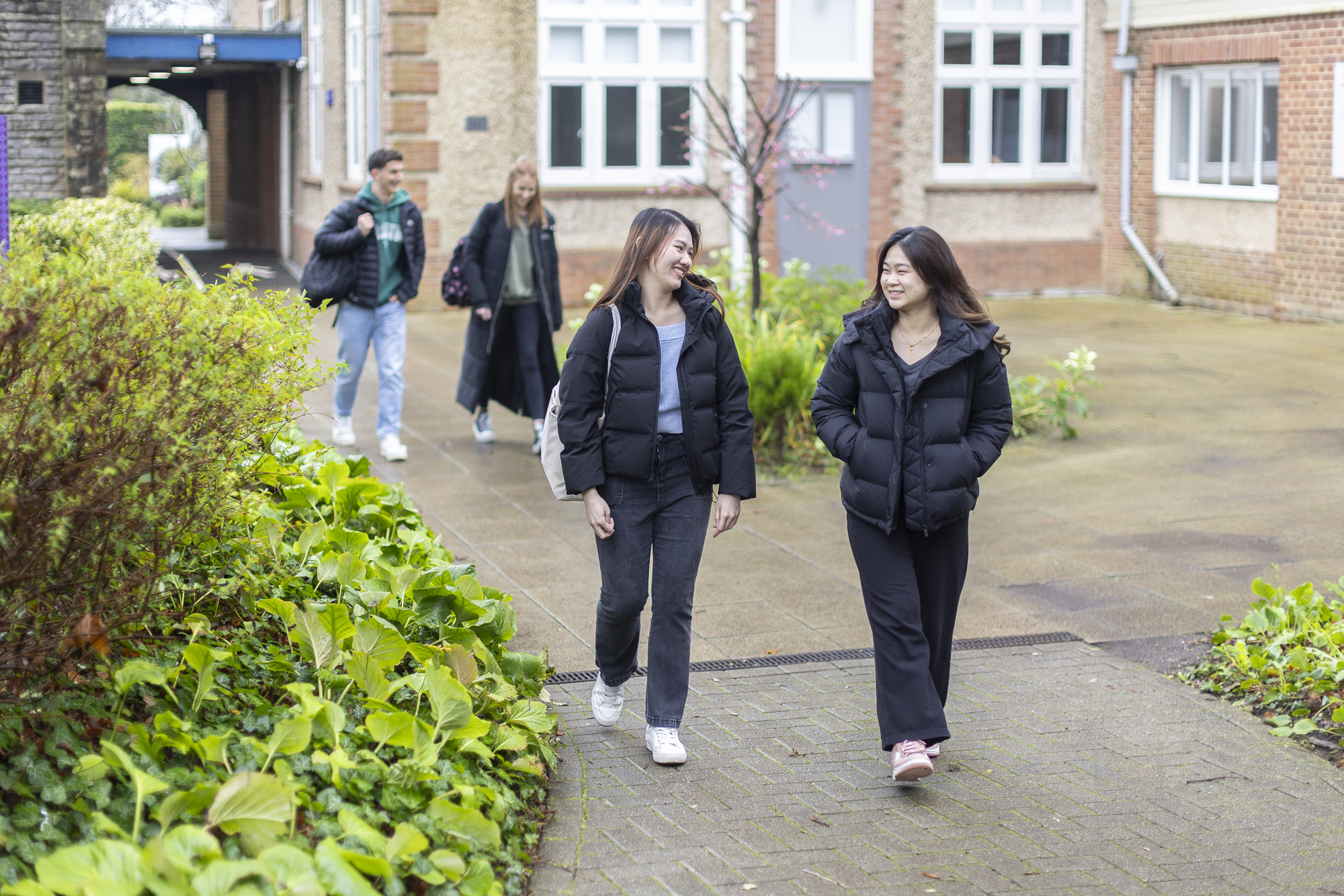
Why choose Health Sciences University
There are many benefits to studying at Health Sciences University, from our expertise and history in teaching health sciences, to our state-of-the-art facilities, on-site clinical training, and of course our location on the beautiful Bournemouth coast.
